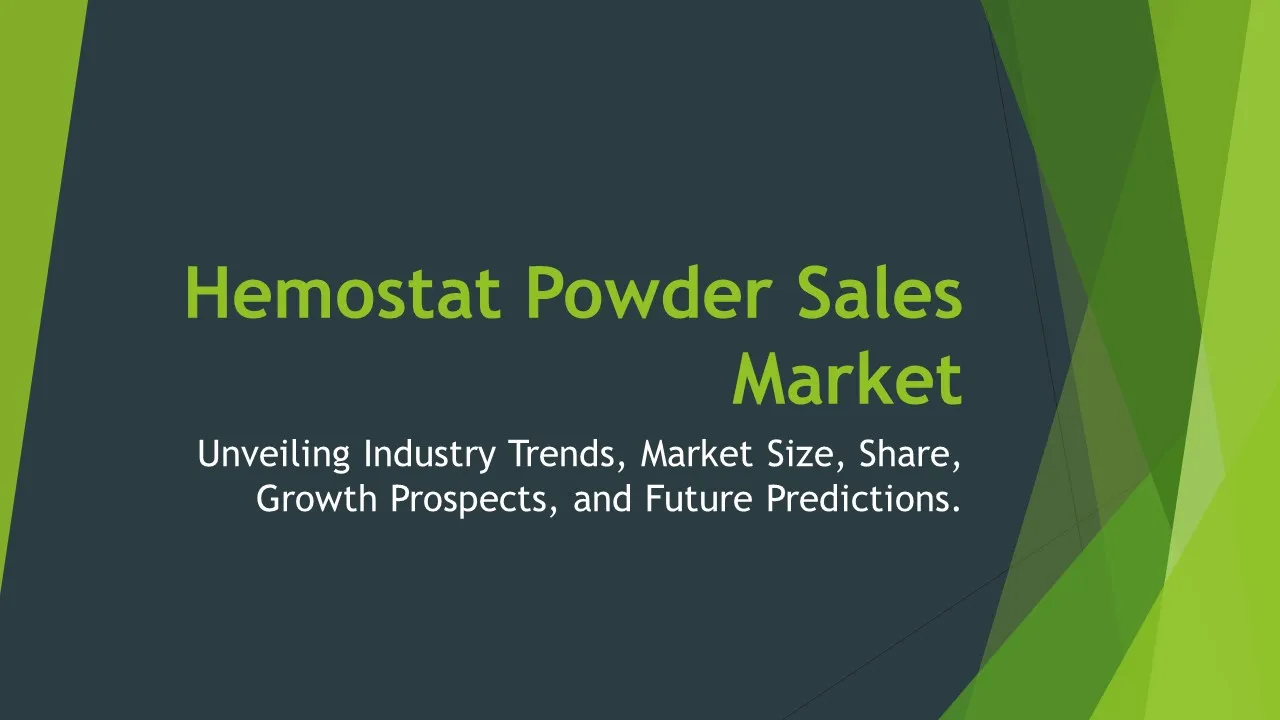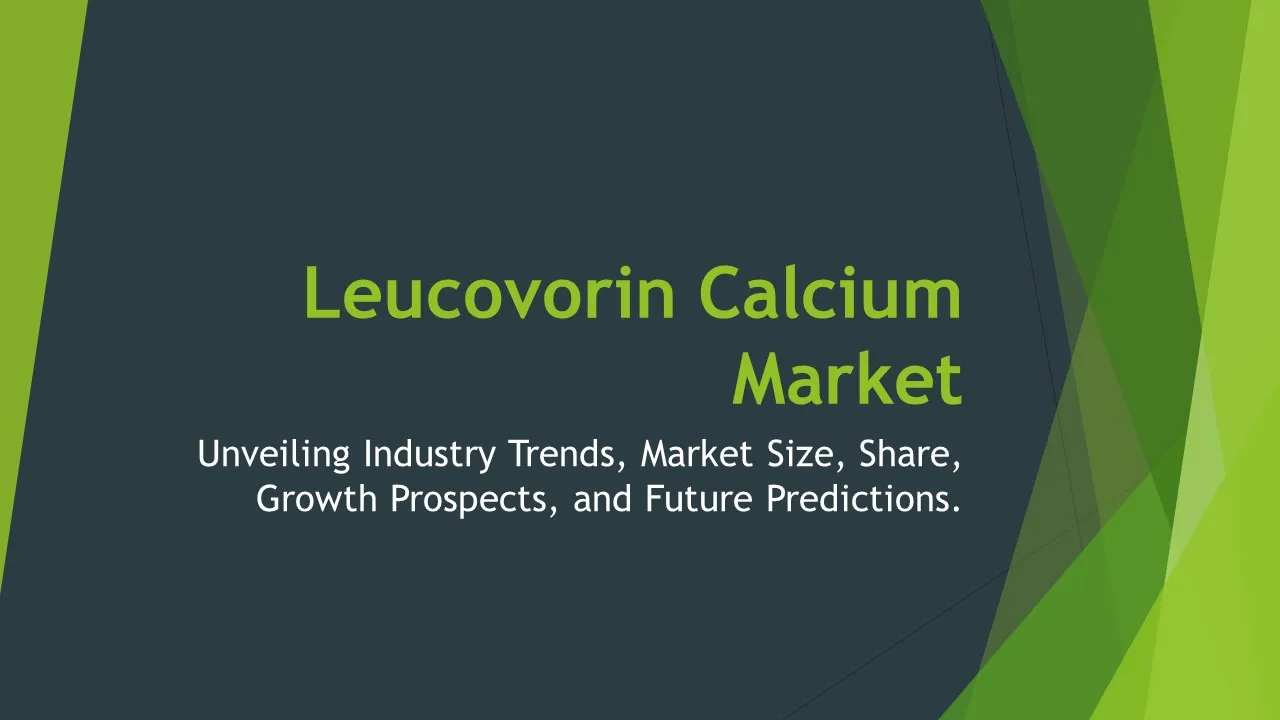Antibody Sales
Antibody Sales Market Segments - by Product Type (Monoclonal Antibodies, Polyclonal Antibodies, Recombinant Antibodies, Primary Antibodies, Secondary Antibodies), Application (Therapeutic Antibodies, Diagnostic Antibodies, Research Antibodies, Imaging Antibodies, Immunoassays), Distribution Channel (Hospitals & Clinics, Online Stores, Biopharmaceutical Companies, Research Institutes, Diagnostic Laboratories), Antibody Type (IgG, IgM, IgA, IgE, IgD), and Region (North America, Europe, Asia Pacific, Latin America, Middle East & Africa) - Global Industry Analysis, Growth, Share, Size, Trends, and Forecast 2025-2035
- Report Preview
- Table Of Content
- Segments
- Methodology
Antibody Sales Market Outlook
The global Antibody Sales Market is projected to reach approximately USD 149 billion by 2035, growing at a CAGR of around 12% during the forecast period of 2025-2035. This substantial growth is driven by the rising prevalence of chronic diseases and the increasing need for accurate diagnostic tools. In addition to health concerns, advancements in biotechnology and a growing demand for personalized medicine are further propelling market expansion. Moreover, the growing investments in research and development from both public and private sectors are significant factors contributing to the market's upward trajectory. The continuous evolution of antibody-based therapies and diagnostics also plays a key role in expanding market opportunities.
Growth Factor of the Market
The Antibody Sales Market is experiencing robust growth primarily due to the increasing incidence of diseases that require antibody-based therapies, including various types of cancer, autoimmune disorders, and infectious diseases. The technological advancements in antibody development, including the rise of monoclonal antibodies, are making these therapies more effective and accessible. Furthermore, the demand for early and accurate diagnosis of diseases has led to an increase in the utilization of antibodies in diagnostic procedures. Additionally, the growing number of research activities aimed at understanding immune responses and developing new therapeutics are driving innovation in this field. The expansion of healthcare infrastructure globally, especially in developing nations, is also facilitating the availability of antibody products and services, thus contributing to market growth.
Key Highlights of the Market
- Significant growth in therapeutic antibody applications, particularly in oncology and autoimmune diseases.
- Increasing adoption of antibody-based diagnostic tools in hospitals and laboratories.
- Emergence of new technologies in antibody development, enhancing specificity and efficacy.
- Growing investment in R&D activities to discover innovative antibody solutions.
- Expansion of distribution channels, enhancing accessibility to antibody products.
By Product Type
Monoclonal Antibodies:
Monoclonal antibodies (mAbs) dominate the antibody sales market due to their specificity and efficacy in targeting specific antigens. They are widely used in therapeutic applications, particularly in oncology, where they have revolutionized treatment options by allowing for targeted therapies with fewer side effects than traditional chemotherapy. The continuous development of new mAbs, particularly those that can engage the immune system for enhanced anti-tumor activity, is further driving their market presence. Additionally, mAbs are extensively utilized in diagnostics and research applications, making them a versatile choice in the antibody market. Their ability to be engineered and modified for various functions further enhances their appeal to researchers and clinicians alike.
Polyclonal Antibodies:
Polyclonal antibodies (pAbs) also hold a significant share in the antibody sales market owing to their broad specificity. These antibodies are derived from multiple cell lines and can recognize multiple epitopes on a single antigen, making them valuable for various applications, including therapeutic and diagnostic uses. They are particularly advantageous in research settings where heterogeneity in antigen recognition is beneficial. The ease of production and lower costs compared to monoclonal antibodies make pAbs a popular choice, especially in academic and non-profit research settings. With growing research and diagnostic demands, the market for polyclonal antibodies is expected to maintain steady growth in the coming years.
Recombinant Antibodies:
Recombinant antibodies are gaining traction in the market due to their reproducibility and targeted specificity. These antibodies are engineered in the laboratory, which allows for precise control over their production and properties. The ability to rapidly produce large quantities of these antibodies has made them increasingly popular in both research and therapeutic applications. Furthermore, their versatility in being modified for various applications, such as conjugation to drug delivery systems, enhances their utility in modern biomedical research and therapy. As researchers increasingly demand tailored solutions, the recombinant antibodies segment is poised for significant growth in the antibody market.
Primary Antibodies:
Primary antibodies are essential tools in a variety of research applications, particularly in techniques such as Western blotting, immunohistochemistry, and flow cytometry. Their ability to bind specifically to target antigens makes them crucial for identifying and quantifying proteins within a sample. The ongoing advancements in antibody production techniques and the increasing specificity of primary antibodies are expected to bolster their market demand further. The growth of the clinical and research laboratory sectors is also contributing to the rising utilization of primary antibodies, making them a vital component of the antibody sales market.
Secondary Antibodies:
Secondary antibodies, which are used for detecting primary antibodies, play a crucial role in numerous immunological techniques, thereby driving their demand in the antibody sales market. These antibodies are typically raised against species-specific immunoglobulins and are essential for obtaining enhanced signal detection in various assays. Their versatility allows them to be conjugated with different markers, such as enzymes or fluorescent dyes, which facilitates a wide array of applications in both research and clinical settings. As the demand for accurate and sensitive detection methods continues to rise, the secondary antibodies segment is expected to witness significant growth in the market.
By Application
Therapeutic Antibodies:
Therapeutic antibodies represent one of the fastest-growing segments within the antibody sales market, primarily driven by their effectiveness in treating various diseases. These antibodies are specifically designed to target and modulate disease-causing mechanisms, particularly in the fields of oncology, immunology, and infectious diseases. The growing approval rate of therapeutic antibodies by regulatory authorities is a testament to their effectiveness and safety, leading to their increased adoption in clinical practice. As ongoing research continues to uncover new therapeutic targets and mechanisms, the demand for therapeutic antibodies is expected to surge further, significantly contributing to the overall market growth.
Diagnostic Antibodies:
Diagnostic antibodies play a crucial role in the detection and monitoring of diseases, thus significantly influencing the antibody sales market. These antibodies are utilized in various immunoassays and diagnostic tests, allowing for rapid and accurate detection of disease markers. With the increasing prevalence of chronic and infectious diseases, the demand for reliable diagnostic tools has surged. Technological advancements in diagnostic platforms, including point-of-care testing and high-throughput screening, are further enhancing the application of diagnostic antibodies in clinical laboratories. This trend is expected to continue, driving the growth of this segment in the market.
Research Antibodies:
The research antibodies segment is a cornerstone of the antibody sales market, as they are indispensable tools for scientists investigating biological processes and disease mechanisms. These antibodies are extensively used in various applications such as flow cytometry, ELISA, and Western blotting. With the increasing focus on life sciences research and the need for advancing biomedical understanding, the demand for high-quality research antibodies continues to rise. The availability of specialized antibodies tailored for specific research needs is further enhancing their use, leading to consistent growth in the research antibodies segment.
Imaging Antibodies:
Imaging antibodies are gaining importance in the antibody sales market due to their application in visualizing specific antigens in tissues and cells. These antibodies are often conjugated with imaging agents, allowing researchers and clinicians to study disease progression and cellular interactions at a molecular level. As precision medicine and targeted therapies gain traction, the need for effective imaging techniques is becoming increasingly critical. The growth of this segment is further supported by advancements in imaging technologies, which facilitate the integration of antibody-based methods with non-invasive imaging modalities, thus enhancing their clinical utility.
Immunoassays:
Immunoassays represent a significant portion of the antibody sales market, facilitating the detection of antigens or antibodies in a wide range of applications. These assays are crucial for diagnosing diseases, monitoring therapeutic responses, and conducting research. The development of novel immunoassay platforms and technologies, such as multiplex assays and point-of-care testing, is expanding the utility of antibodies in clinical diagnostics and research settings. The rising focus on personalized medicine and the need for rapid diagnostics are expected to drive the demand for immunoassays, positively impacting the overall antibody market.
By Distribution Channel
Hospitals & Clinics:
The hospitals and clinics distribution channel is a vital segment of the antibody sales market, as these facilities are primary users of therapeutic and diagnostic antibodies. The increasing number of hospitals and clinics around the globe, coupled with rising healthcare expenditures, is driving the demand for antibodies in this sector. Hospitals utilize a wide range of antibodies for various applications, including immunotherapy and diagnostics, thereby necessitating a reliable supply chain. As the healthcare industry continues to evolve and expand, the importance of this distribution channel is expected to grow, significantly influencing market dynamics.
Online Stores:
Online stores have emerged as a prominent distribution channel in the antibody sales market due to the convenience and accessibility they offer to researchers and clinicians. The growth of e-commerce platforms has made it easier for customers to order a variety of antibody products without geographical constraints. This trend is further supported by the increasing digitization of the healthcare and research sectors, which is being accelerated by the COVID-19 pandemic. Online retailers often provide a broader range of products and detailed information on antibody specifications, facilitating informed purchasing decisions. As online shopping continues to gain popularity, this distribution channel is expected to witness substantial growth in the coming years.
Biopharmaceutical Companies:
Biopharmaceutical companies play a crucial role in the antibody sales market, primarily as manufacturers and suppliers of therapeutic antibodies. These companies invest heavily in research and development to produce high-quality antibodies that can be used in various therapeutic applications. The increasing collaboration between biopharmaceutical companies and research institutes is further boosting the availability of novel antibody formulations in the market. The growing demand for biologics and monoclonal antibody therapies is expected to drive the growth of this distribution channel, as these companies strive to meet the needs of healthcare providers and patients worldwide.
Research Institutes:
Research institutes are critical players in the antibody sales market as they are major consumers of research antibodies for scientific studies. These institutions rely on high-quality antibodies to conduct experiments and validate findings, thereby driving the demand for various types of antibodies. The increasing funding for research initiatives and the growing emphasis on biomedical studies are contributing to the expansion of this distribution channel. Furthermore, research institutes often collaborate with antibody manufacturers to develop customized solutions, which enhances the variety of available products. This collaborative approach is expected to foster growth in the research institute distribution channel.
Diagnostic Laboratories:
Diagnostic laboratories are essential in the antibody sales market as they utilize antibodies for various testing and diagnostic purposes. The increasing prevalence of diseases, coupled with rising healthcare demands, is driving the need for reliable diagnostic services. These laboratories employ antibodies in immunoassays, serological tests, and other diagnostic procedures to accurately identify and quantify disease markers. The continuous advancements in laboratory technologies and the growing focus on early disease detection are expected to propel the demand for antibodies in diagnostic laboratories, fostering overall market growth.
By Antibody Type
IgG:
IgG antibodies are the most prevalent type of antibodies and account for a significant share of the antibody sales market. Known for their ability to neutralize pathogens and provide long-term immunity, IgG antibodies are widely utilized in therapeutic and diagnostic applications. Their high specificity and affinity for antigens make them highly effective in various immunoassays and treatment regimens, particularly in oncology and autoimmune disease therapies. The robust pipeline of IgG-based therapeutics and the development of new IgG formulations are expected to drive the growth of this segment in the coming years, as their clinical utility continues to expand.
IgM:
IgM antibodies are the first type of antibodies produced in response to an infection and play a crucial role in the initial immune response. Their pentameric structure allows them to efficiently bind to antigens, making them vital for early diagnosis and monitoring of infections. The rising demand for rapid diagnostic tests, particularly for infectious diseases, has fueled the growth of IgM antibodies in the market. Moreover, ongoing research into the therapeutic applications of IgM, including their potential use in immunotherapy, is expected to contribute significantly to the growth of this segment.
IgA:
IgA antibodies are primarily found in mucosal areas and play a key role in protecting against pathogens at mucosal surfaces. Their importance in respiratory and gastrointestinal infections has led to a growing interest in their therapeutic and diagnostic applications. As researchers increasingly recognize the significance of mucosal immunity, the demand for IgA antibodies is expected to rise. Additionally, the development of novel IgA antibody formulations for therapeutic use is likely to drive growth in this segment, as more treatment options become available for various diseases.
IgE:
IgE antibodies are associated with allergic reactions and play a vital role in the immune response to allergens. The increasing prevalence of allergic diseases and asthma has driven demand for IgE antibodies in both diagnostic and therapeutic applications. The growing awareness of the importance of early diagnosis and management of allergic conditions is further contributing to this segment's growth. As the healthcare community continues to focus on developing effective treatments for allergies, the market for IgE antibodies is anticipated to expand significantly.
IgD:
IgD antibodies are the least understood and least abundant type of immunoglobulin, but they play an essential role in the immune system, particularly in B cell activation. While their presence in the antibody sales market is relatively small compared to other types, ongoing research into their functions and potential therapeutic applications is beginning to shed light on their significance. As researchers continue to explore the role of IgD in immune responses and disease pathogenesis, the awareness and demand for IgD antibodies may increase, presenting new opportunities within the market.
By Region
The Antibody Sales Market exhibits varying dynamics across different regions, reflecting the diverse healthcare landscapes, regulatory environments, and research initiatives. North America holds a dominant position in the market, accounting for approximately 45% of the global revenue share due to its advanced healthcare infrastructure and high expenditure on research and development. The region benefits from a robust biopharmaceutical sector, with numerous companies engaged in the development and commercialization of antibody-based therapies. Furthermore, the rising prevalence of chronic diseases and increased investments in personalized medicine are expected to drive the North American market at a CAGR of around 11% over the forecast period.
Europe follows North America in market share, accounting for nearly 30% of the global antibody sales market. The region is characterized by a strong emphasis on research and development, supported by a favorable regulatory environment for biopharmaceuticals. The increasing collaboration between academic institutions and industry stakeholders is facilitating the discovery of new antibody therapies and research antibodies. Additionally, the growing aging population and the subsequent rise in chronic diseases are expected to propel the demand for antibody products in Europe. Other regions, including the Asia Pacific and Latin America, are also witnessing growth due to increasing healthcare investments and expanding access to antibody therapies, albeit at a slower pace compared to North America and Europe.
Opportunities
The Antibody Sales Market presents numerous opportunities for growth, particularly in emerging markets where healthcare infrastructure is rapidly evolving. The increasing investment in healthcare and research initiatives in regions such as Asia Pacific and Latin America is driving the demand for antibody products. Companies that strategically position themselves to tap into these growing markets can benefit from the rising demand for antibodies in therapeutic and diagnostic applications. Moreover, the trend towards personalized medicine and tailored therapies is creating opportunities for the development of innovative antibody-based solutions that address specific patient needs. Collaborative partnerships between biopharmaceutical companies and research institutions can further accelerate the development of new products, enhancing market potential.
Additionally, advancements in antibody engineering and production technologies are opening new avenues for growth in the antibody sales market. The emergence of bispecific antibodies and antibody-drug conjugates is revolutionizing treatment options and expanding the therapeutic applications of antibodies. As the scientific community continues to explore novel applications and mechanisms of action for antibodies, companies that invest in R&D to develop cutting-edge products will likely see substantial returns. Furthermore, the increasing focus on immunotherapy and biologics in treating various diseases, including cancer, provides a fertile ground for antibody development, fostering an environment ripe for innovation and growth in the market.
Threats
Despite the promising growth prospects of the Antibody Sales Market, several threats loom that could impede progress. The high cost of antibody production and the complexities involved in their development can pose significant challenges for manufacturers. The stringent regulatory environment governing the approval of antibody-based therapeutics necessitates extensive clinical trials and compliance with rigorous standards, which can be time-consuming and costly. Moreover, the increasing competition from biosimilars, which offer lower-cost alternatives to branded antibody products, threatens market share and pricing structures. As the market for biosimilars continues to grow, established companies may face pressure to lower prices or invest heavily in differentiation strategies to maintain their competitive edge.
Additionally, the rapid pace of technological advancements means that companies must continuously innovate to stay relevant in the antibody sales market. Failure to keep up with emerging trends and developments can lead to loss of market position. There is also a growing concern regarding the sustainability of antibody production practices, as the sourcing of raw materials and environmental considerations come under scrutiny. Companies that do not adapt their practices to meet sustainability criteria may face backlash from consumers and regulators alike, further complicating their market presence.
Competitor Outlook
- Roche Holding AG
- AbbVie Inc.
- Johnson & Johnson
- Amgen Inc.
- Novartis AG
- Sanofi S.A.
- Merck & Co., Inc.
- Bristol-Myers Squibb Company
- Celgene Corporation
- GSK plc
- Genentech, Inc.
- Regeneron Pharmaceuticals, Inc.
- Pfizer Inc.
- AstraZeneca PLC
- Biogen Idec Inc.
The competitive landscape of the Antibody Sales Market is characterized by the presence of several established players and emerging companies striving to capture market share. Major companies such as Roche, AbbVie, and Johnson & Johnson dominate the market with their extensive portfolios of antibody-based therapies and diagnostics. These companies invest heavily in research and development, ensuring they remain at the forefront of innovation in the antibody space. Moreover, their strong distribution networks and established relationships with healthcare providers enable them to effectively reach a broad customer base, further solidifying their market position. In addition, many of these companies engage in strategic collaborations and partnerships to enhance their product offerings and expand into new markets.
Emerging companies in the antibody sales market are also making significant strides by focusing on niche segments and innovative product development. These companies often leverage cutting-edge technologies, such as recombinant DNA technology and antibody engineering, to create unique antibody products that address unmet medical needs. The rise of biosimilars presents both a challenge and an opportunity for these companies, as they can compete on price and accessibility while developing novel antibody therapies that may offer improved efficacy. The dynamic nature of the market encourages innovation and adaptation, with both established and emerging firms continuously seeking ways to differentiate themselves from the competition.
Key players such as Amgen and Novartis are recognized for their strong research pipelines and commitment to developing new antibody therapies that target various diseases. Amgen, for instance, has made significant advancements in the field of oncology with its portfolio of monoclonal antibodies, while Novartis is known for its focus on targeted therapies and personalized medicine. These companies not only drive growth in the antibody sales market through product innovation but also contribute to advancing scientific knowledge and improving patient outcomes. As the market continues to evolve, collaboration among industry leaders, research institutions, and healthcare providers will be crucial in addressing the challenges and opportunities that lie ahead.
1 Appendix
- 1.1 List of Tables
- 1.2 List of Figures
2 Introduction
- 2.1 Market Definition
- 2.2 Scope of the Report
- 2.3 Study Assumptions
- 2.4 Base Currency & Forecast Periods
3 Market Dynamics
- 3.1 Market Growth Factors
- 3.2 Economic & Global Events
- 3.3 Innovation Trends
- 3.4 Supply Chain Analysis
4 Consumer Behavior
- 4.1 Market Trends
- 4.2 Pricing Analysis
- 4.3 Buyer Insights
5 Key Player Profiles
- 5.1 GSK plc
- 5.1.1 Business Overview
- 5.1.2 Products & Services
- 5.1.3 Financials
- 5.1.4 Recent Developments
- 5.1.5 SWOT Analysis
- 5.2 Amgen Inc.
- 5.2.1 Business Overview
- 5.2.2 Products & Services
- 5.2.3 Financials
- 5.2.4 Recent Developments
- 5.2.5 SWOT Analysis
- 5.3 AbbVie Inc.
- 5.3.1 Business Overview
- 5.3.2 Products & Services
- 5.3.3 Financials
- 5.3.4 Recent Developments
- 5.3.5 SWOT Analysis
- 5.4 Novartis AG
- 5.4.1 Business Overview
- 5.4.2 Products & Services
- 5.4.3 Financials
- 5.4.4 Recent Developments
- 5.4.5 SWOT Analysis
- 5.5 Pfizer Inc.
- 5.5.1 Business Overview
- 5.5.2 Products & Services
- 5.5.3 Financials
- 5.5.4 Recent Developments
- 5.5.5 SWOT Analysis
- 5.6 Sanofi S.A.
- 5.6.1 Business Overview
- 5.6.2 Products & Services
- 5.6.3 Financials
- 5.6.4 Recent Developments
- 5.6.5 SWOT Analysis
- 5.7 AstraZeneca PLC
- 5.7.1 Business Overview
- 5.7.2 Products & Services
- 5.7.3 Financials
- 5.7.4 Recent Developments
- 5.7.5 SWOT Analysis
- 5.8 Genentech, Inc.
- 5.8.1 Business Overview
- 5.8.2 Products & Services
- 5.8.3 Financials
- 5.8.4 Recent Developments
- 5.8.5 SWOT Analysis
- 5.9 Biogen Idec Inc.
- 5.9.1 Business Overview
- 5.9.2 Products & Services
- 5.9.3 Financials
- 5.9.4 Recent Developments
- 5.9.5 SWOT Analysis
- 5.10 Roche Holding AG
- 5.10.1 Business Overview
- 5.10.2 Products & Services
- 5.10.3 Financials
- 5.10.4 Recent Developments
- 5.10.5 SWOT Analysis
- 5.11 Johnson & Johnson
- 5.11.1 Business Overview
- 5.11.2 Products & Services
- 5.11.3 Financials
- 5.11.4 Recent Developments
- 5.11.5 SWOT Analysis
- 5.12 Merck & Co., Inc.
- 5.12.1 Business Overview
- 5.12.2 Products & Services
- 5.12.3 Financials
- 5.12.4 Recent Developments
- 5.12.5 SWOT Analysis
- 5.13 Celgene Corporation
- 5.13.1 Business Overview
- 5.13.2 Products & Services
- 5.13.3 Financials
- 5.13.4 Recent Developments
- 5.13.5 SWOT Analysis
- 5.14 Bristol-Myers Squibb Company
- 5.14.1 Business Overview
- 5.14.2 Products & Services
- 5.14.3 Financials
- 5.14.4 Recent Developments
- 5.14.5 SWOT Analysis
- 5.15 Regeneron Pharmaceuticals, Inc.
- 5.15.1 Business Overview
- 5.15.2 Products & Services
- 5.15.3 Financials
- 5.15.4 Recent Developments
- 5.15.5 SWOT Analysis
- 5.1 GSK plc
6 Market Segmentation
- 6.1 Antibody Sales Market, By Application
- 6.1.1 Therapeutic Antibodies
- 6.1.2 Diagnostic Antibodies
- 6.1.3 Research Antibodies
- 6.1.4 Imaging Antibodies
- 6.1.5 Immunoassays
- 6.2 Antibody Sales Market, By Product Type
- 6.2.1 Monoclonal Antibodies
- 6.2.2 Polyclonal Antibodies
- 6.2.3 Recombinant Antibodies
- 6.2.4 Primary Antibodies
- 6.2.5 Secondary Antibodies
- 6.3 Antibody Sales Market, By Distribution Channel
- 6.3.1 Hospitals & Clinics
- 6.3.2 Online Stores
- 6.3.3 Biopharmaceutical Companies
- 6.3.4 Research Institutes
- 6.3.5 Diagnostic Laboratories
- 6.1 Antibody Sales Market, By Application
7 Competitive Analysis
- 7.1 Key Player Comparison
- 7.2 Market Share Analysis
- 7.3 Investment Trends
- 7.4 SWOT Analysis
8 Research Methodology
- 8.1 Analysis Design
- 8.2 Research Phases
- 8.3 Study Timeline
9 Future Market Outlook
- 9.1 Growth Forecast
- 9.2 Market Evolution
10 Geographical Overview
- 10.1 Europe - Market Analysis
- 10.1.1 By Country
- 10.1.1.1 UK
- 10.1.1.2 France
- 10.1.1.3 Germany
- 10.1.1.4 Spain
- 10.1.1.5 Italy
- 10.1.1 By Country
- 10.2 Asia Pacific - Market Analysis
- 10.2.1 By Country
- 10.2.1.1 India
- 10.2.1.2 China
- 10.2.1.3 Japan
- 10.2.1.4 South Korea
- 10.2.1 By Country
- 10.3 Antibody Sales Market by Region
- 10.4 Latin America - Market Analysis
- 10.4.1 By Country
- 10.4.1.1 Brazil
- 10.4.1.2 Argentina
- 10.4.1.3 Mexico
- 10.4.1 By Country
- 10.5 North America - Market Analysis
- 10.5.1 By Country
- 10.5.1.1 USA
- 10.5.1.2 Canada
- 10.5.1 By Country
- 10.6 Middle East & Africa - Market Analysis
- 10.6.1 By Country
- 10.6.1.1 Middle East
- 10.6.1.2 Africa
- 10.6.1 By Country
- 10.1 Europe - Market Analysis
11 Global Economic Factors
- 11.1 Inflation Impact
- 11.2 Trade Policies
12 Technology & Innovation
- 12.1 Emerging Technologies
- 12.2 AI & Digital Trends
- 12.3 Patent Research
13 Investment & Market Growth
- 13.1 Funding Trends
- 13.2 Future Market Projections
14 Market Overview & Key Insights
- 14.1 Executive Summary
- 14.2 Key Trends
- 14.3 Market Challenges
- 14.4 Regulatory Landscape
Segments Analyzed in the Report
The global Antibody Sales market is categorized based on
By Product Type
- Monoclonal Antibodies
- Polyclonal Antibodies
- Recombinant Antibodies
- Primary Antibodies
- Secondary Antibodies
By Application
- Therapeutic Antibodies
- Diagnostic Antibodies
- Research Antibodies
- Imaging Antibodies
- Immunoassays
By Distribution Channel
- Hospitals & Clinics
- Online Stores
- Biopharmaceutical Companies
- Research Institutes
- Diagnostic Laboratories
By Region
- North America
- Europe
- Asia Pacific
- Latin America
- Middle East & Africa
Key Players
- Roche Holding AG
- AbbVie Inc.
- Johnson & Johnson
- Amgen Inc.
- Novartis AG
- Sanofi S.A.
- Merck & Co., Inc.
- Bristol-Myers Squibb Company
- Celgene Corporation
- GSK plc
- Genentech, Inc.
- Regeneron Pharmaceuticals, Inc.
- Pfizer Inc.
- AstraZeneca PLC
- Biogen Idec Inc.
- Publish Date : Jan 21 ,2025
- Report ID : PH-68051
- No. Of Pages : 100
- Format : |
- Ratings : 4.5 (110 Reviews)
Related reports









